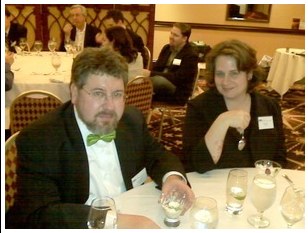
This weekend I had the distinct pleasure of assisting Jennifer McClure, the Executive Director of the Society for New Communications Research, at the Society's annual ...
The announcement came a day or so ago: President-Elect Obama will be recording a brief, weekly video address, and distributing it via YouTube. For the legions of social media practitioners who participated in his campaign, and for those who watched from the sidelines or from another campaign's trenches, this constitutes big news.
It's being hailed as a first important step in fulfilling the promise of his campaign, not in the sense of advancing any particular agenda or legislation, but in the sense of moving forward with the remarkable community base his campaign built up over the past two years.
Many of us have been wondering how President-Elect Obama would use the channels of communication so painstakingly established and so effectively used during his presidential campaign to help steer his team through the transition process, and onward into the full term of his presidency.
Some predicted that this election would usher in an era of "Government 2.0" and establish an unprecedented level of transparency and authenticity in government and governing. Some remained more cynical. I doubt that any of us expected the Obama team to abruptly relinquish the powerful tools of social media once they crossed the finish line of the election.
So far, what I have seen is a certain amount of pulling back on the Obama team's part. During the campaign there was a visible give-and-take between the campaign's foot soldiers and the top leadership team, and the MyBarackObama.com website allowed for real participation and user contribution, through blogs, messaging, and events that brought the online world into Real Life (like the coordination of neighborhood rallies and events).
Now, however, the new Change.gov website is considerably more one-way. The only blog on the site is the one from the Obama transition team, and comments are not enabled. There's a place for visitors to "Share Your Story" and "Share Your Vision," but this, too, is a one-way conversation.
I had an interesting conversation this weekend with Josh Bernoff, co-author of Groundswell, about the Obama team's shift in tone on their social media. He also blogged recently about the new Change.org website, and points out a few things worth repeating:
Is it social? Not yet. It contains outgoing information. And it solicits your feedback. But when you tell President-Elect Obama your vision for America, your suggestion goes . . . well, I don't know where it goes. You type it in and then get the "thanks for sharing" message shown here. Will they just pick the ones they like and republish them?
Embracing applications like mystarbucksidea.com require two things to be successful. 1. everyone needs to see all the ideas. And 2. the organization has to respond -- tell what it is going to do (or not do) about the ideas.
He then issues a call to action, and asks readers to go to the change.gov website and ask them to change they way they run this part of the site:
So here's what you should do. Publish all the ideas that people enter on this site. Allow us all to vote for them. And then tell us, directly, what you are going to do to address the ones that are most popular, or the best.
Interestingly, about 4 days after Josh issued this call to action, a new entry on the Change.gov blog published a smattering of submitted entries. Maybe four or fine snippets are quoted here among the tens (hundreds? thousands?) of thousands of entries they must have already received. Just as Bernoff predicted, they just picked the ones they liked and republished them.
It reads less like a message board and more like a stump speech.
It's too bad, because the real, authentic sharing of the voices of actual people was what made that campaign go. It now looks like they're imposing a far more finely-meshed filter on the social media content on their site. This has the unfortunate effect of putting the brakes on the momentum, and stifling the part of what they were doing that really engaged with individuals, with communities.
Let's hope the filter comes off again as time goes on.

This weekend I had the distinct pleasure of assisting Jennifer McClure, the Executive Director of the Society for New Communications Research, at the Society's annual ...